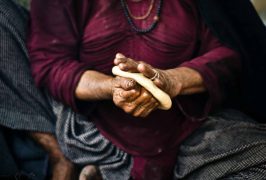This case concerned compensation for survivors of residential schools.
LEAF, with the involvement of West Coast LEAF, intervened before the Supreme Court of Canada, in coalition with:
- Native Women’s Association of Canada (NWAC)
- DisAbled Women’s Network Canada (DAWN)
Facts
From the 1940s through the 1960s, the Canadian government and the United Church of Canada operated a residential school in British Columbia. Under the Indian Act, Indigenous children were taken from their families and sent to the school. There, they were subject to physical abuse and some faced sexual violence and abuse.
A number of residential school survivors, including Mr. Barney, filed lawsuits seeking damages for the sexual abuse and other harms. The trial judge held that only the sexual abuse claims could move forward, because the statute of limitations barred the other claims. The trial judge found Plint, a dormitory supervisor at the residential school, liable for sexual assault. The judge awarded damages against Canada, the Church, and Plint. The British Columbia Court of Appeal held that the Church was immune from liability because it is a charity, and that Canada was entirely liable as a result. The case was appealed to the Supreme Court of Canada.
Arguments
The Coalition argued that the tort principles applicable to cases of institutional abuse, including residential school abuse, needed to be informed by the principles of substantive equality for disadvantaged persons. In this case, this required courts to recognize the unique and complex nature of residential school abuse so that the calculation of damages acknowledged all of the physical and emotional harms suffered. It meant calculating damages based on the survivor’s position before being put in a residential school and suffered harms based on that, not while they were in the residential school but before they had been assaulted. It also required taking into account the racist context in which residential schools emerged, and exempting institutional abuse from limitations periods.
Outcome
The Court held that the Church was not immune from liability, and restored the trial judge’s division of damages. But the Court refused to increase the damages awarded as requested by Mr. Barney.
LEAF is grateful to Marie Elena O’Donnell, counsel in this case, as well as Carole Brown, Ottawa agent for the Coalition.
Download the factum here.
Read the Supreme Court of Canada’s decision here.
Our records are imperfect, but we are doing our best to update them – if you were involved with LEAF on this case but your name is not reflected here, please email us at [email protected].
